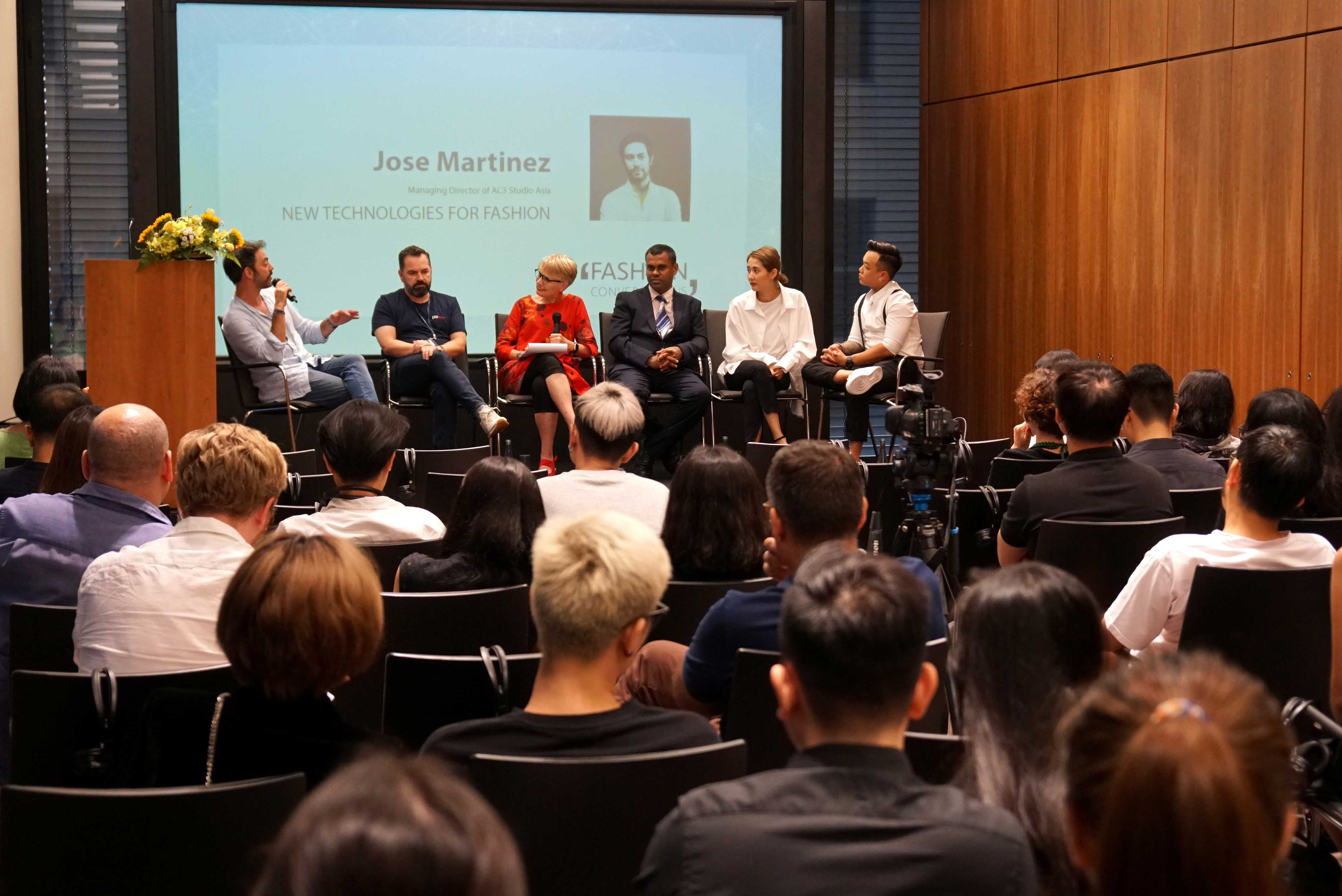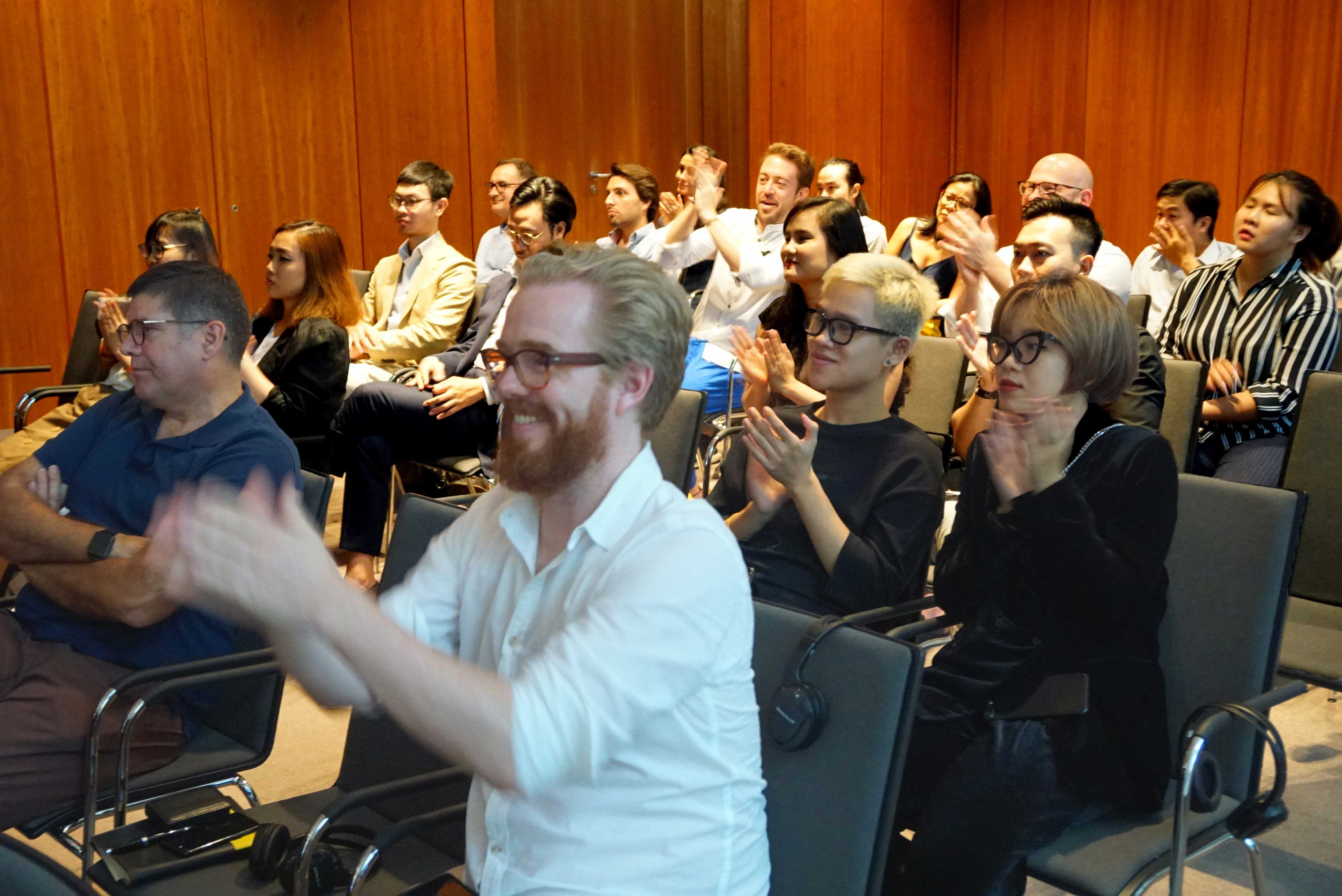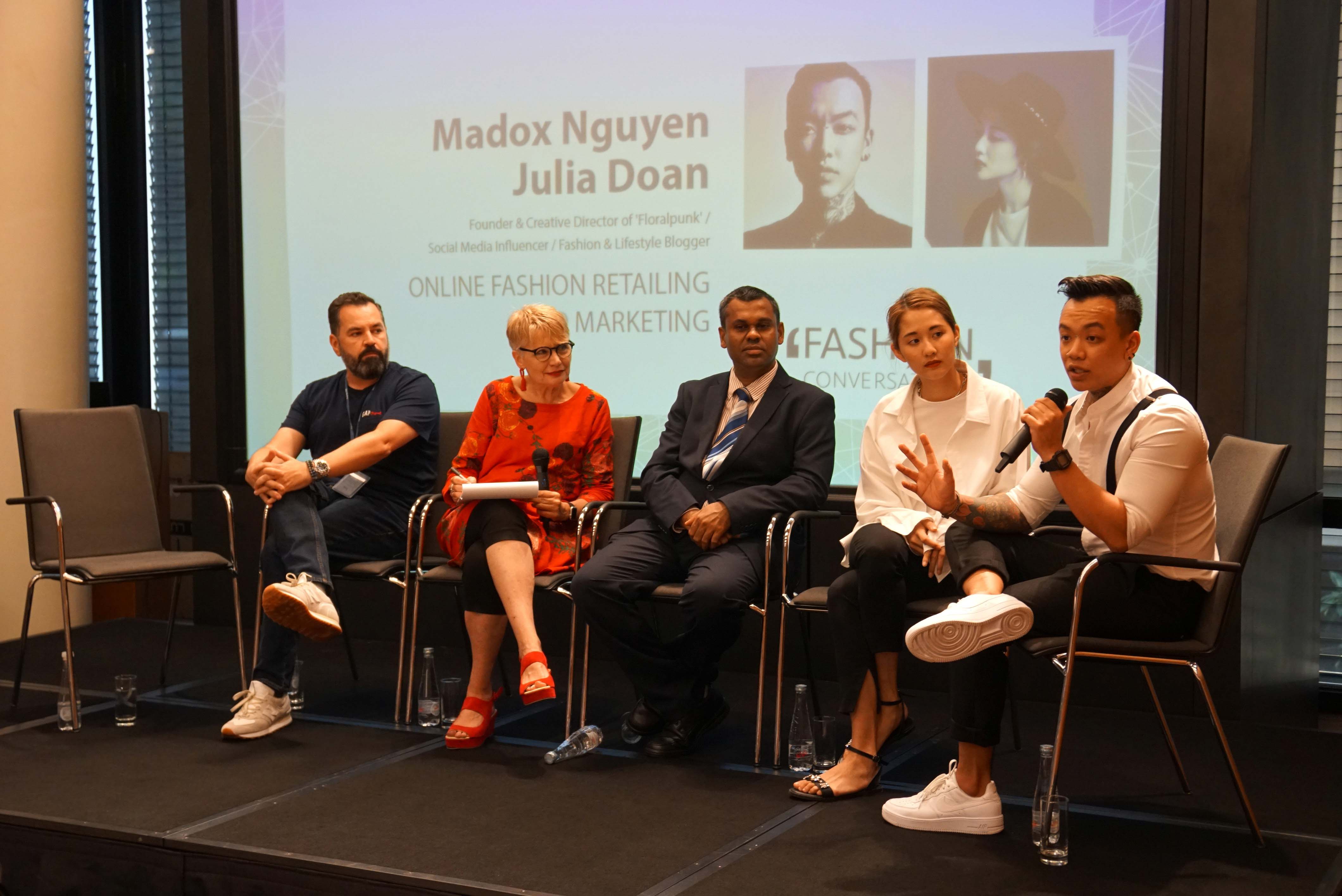As investment continues to flow in, the entire industry -- from small boutique designers to global corporate brands, manufacturers and retailers -- is experiencing huge changes in production and marketing processes alongside technology developments and shifts in consumer expectations.
Fashion industry experts gathered to discuss these topics at the recent event Fashion Conversations, an RMIT University Vietnam led initiative designed to support the development of creative industries in Vietnam.
 Fashion Conversations panelists discuss the impact of technology on the fashion industry in Vietnam (L-R: Jose Martinez, Michael McGarr, Julia Gaimster, Rajikshore Nayak, Julia Doan, Madox Nguyen)
Fashion Conversations panelists discuss the impact of technology on the fashion industry in Vietnam (L-R: Jose Martinez, Michael McGarr, Julia Gaimster, Rajikshore Nayak, Julia Doan, Madox Nguyen)
“There are many technological developments in the fashion industry that are based around speed, innovation and digitalisation,” said Dr Rajikshore Nayak, Senior Lecturer from the School of Communication & Design, who has witnessed how technology can both disrupt and enhance industries during his 15 years of teaching and researching manufacturing, sustainability, human ecology and waste management in fashion.
“Many textile companies are switching to machines to manage things like weave density and quality consistency in the fabric. Others are concentrating on introducing new developments to support sustainability, like waterless techniques to eradicate waste water.
“The fashion industry in Vietnam has always been labour intensive, so shifting to automation will be a big change. But these new technologies can increase efficiency and productivity, and also reduce environmental impact.”
As the fashion industry in Vietnam has always relied heavily on labour, Regional Director of Sourcing and Production at GAP Inc. Michael McGarr said the introduction of automation has been met with caution by some: “I think the worry here is jobs. But we’ve seen many industries that have embraced technology; there are new opportunities that appear with it. It’s about [businesses] having the right strategy.
“The biggest benefit is speed. [With technology], we can now design, fit, cut, have runs done, and have the product in store within three weeks,” Mr McGarr said. “But the key thing for us is sustainability. We set ourselves high targets, so we need technology to be able to achieve that.”
Managing Director of AC3 Studio Asia Jose Martinez, described Vietnam as “the land of opportunities”.
“Trends are changing and the economy is booming,” Mr Martinez said. “More than half the population is younger than 25 so we have a great opportunity to work with millennials. The pool of young talent here is quite good.”
Mr Martinez identified two main emerging technologies: contactless shopping and artificial intelligence. Contactless shopping will eliminate shop fronts, sales staff, checkouts and cash, thereby reducing business costs, while artificial intelligence will allow for more efficiency and agility. Artificial intelligence will also enable businesses to predict production and trend forecasts more accurately and provide an overall better retail experience, like 3D dressing rooms.
 The Fashion Conversations audience included key fashion players from industry, education, retail and media
The Fashion Conversations audience included key fashion players from industry, education, retail and media
“Technology is shaping industries, fashion as well. If you don’t try and integrate technology into the brand, you will be out of the game in the next five years,” Mr Martinez said.
But with all this technology set to become the new norm in Vietnam in the near future, founder and creative director of Floralpunk Julia Doan said that while it’s important for the fashion industry to continue to investigate and adopt new technology, consumers need to be educated in the process.
“To stay competitive, we need to adapt to new technologies,” Ms Doan said. “But with so much change to consumer behaviour in Vietnam [due to new technologies], customer education [has become] one of our biggest challenges. There are still so many people who don’t know how to buy online, especially the older generation.”
Floralpunk business partner Madox Nguyen agreed and said there’s a lot of consumer education needed in the local market: “In the West, online shopping started with a website experience. But in Vietnam, they leap frog over the e-commerce website and move straight to social media purchases. At the moment our customers are not using e-commerce websites, but virtual reality is the next thing we will look at; it will mean more people can be reached, while having the same retail experience as someone in a store.”
 Floralpunk business partner Madox Nguyen said virtual reality is the next thing Floralpunk will be focusing on, to give their customers a better retail experience online
Floralpunk business partner Madox Nguyen said virtual reality is the next thing Floralpunk will be focusing on, to give their customers a better retail experience online
The experts gathered Fashion Conversations discussed many topics, from fabric technology and robot machinery, to 3D online shopping experiences and cashless economies. The audience consisted of representatives from the fashion industry, education, retail and media.
Head of Design for the School of Communication & Design at RMIT University, Professor Julia Gaimster described the event as a space that promoted “thought leadership”. “As we all know, the fashion and textile industry is vital to the Vietnamese economy. So it’s important for the fashion industry to continue to create new networks to help deal with challenges that are changing every day, to move the industry into the future.”
Story: Lisa Humphries